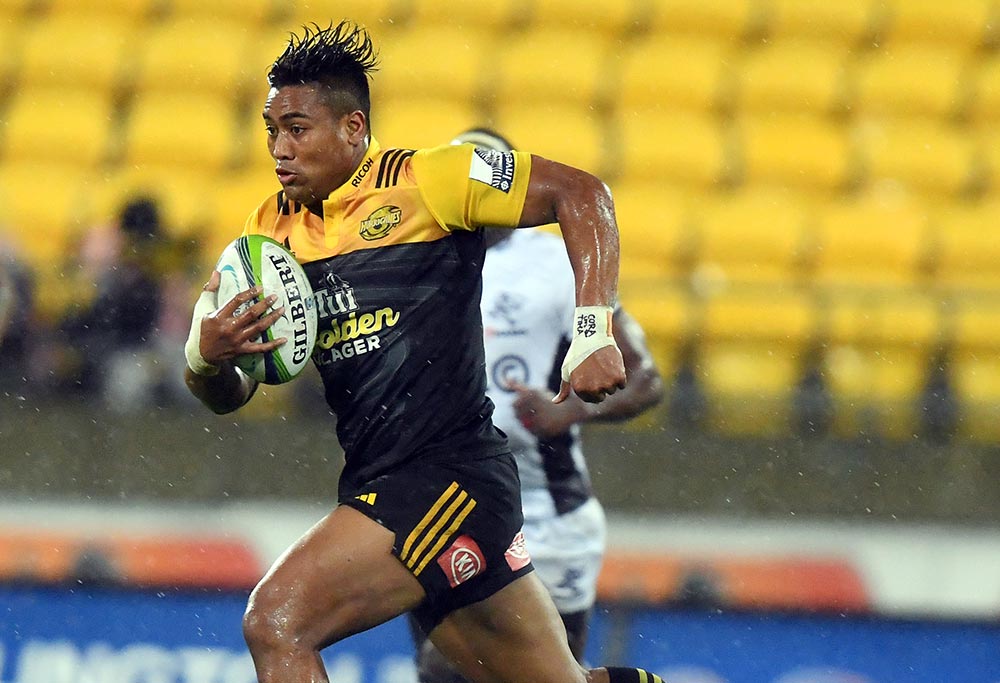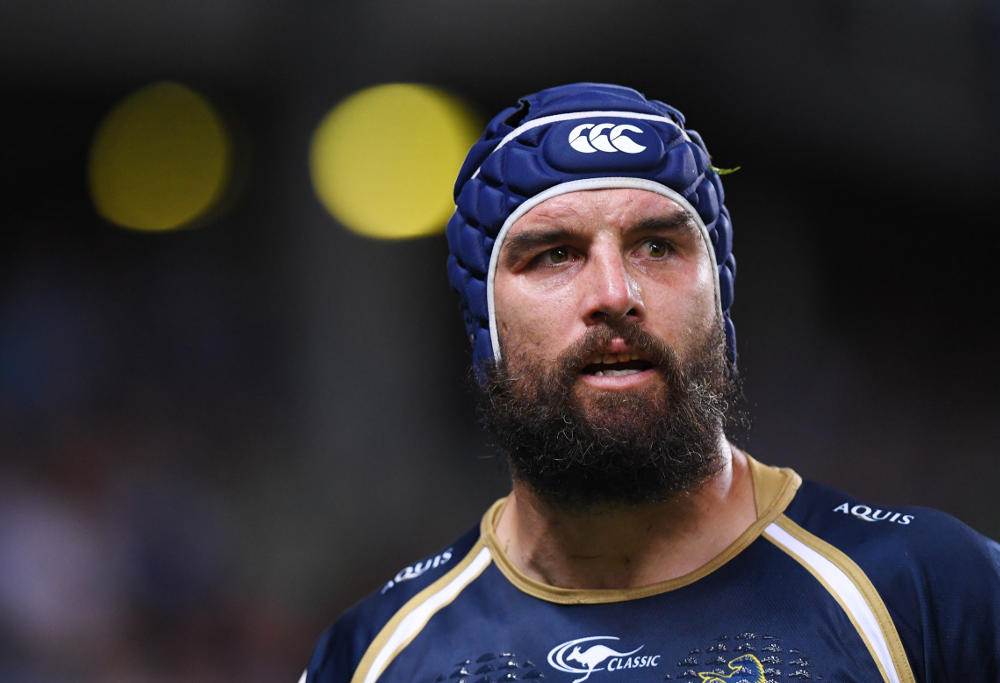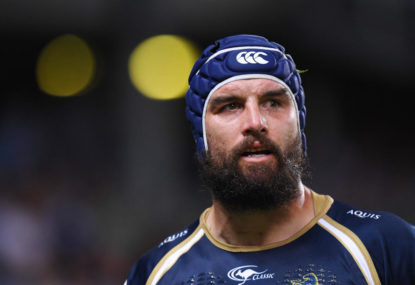Regardless of your thoughts around the Super Rugby finals format, the Brumbies were part of it in 2017. But though they were practically friendless heading into their Qualifying Final with the Hurricanes on Friday night, and even with the score blowing out in the last fifteen minutes, they were far from disgraced in going down.
In going down as they did, however, to bring the curtain down on an otherwise completely forgettable year for Australia in Super Rugby, the Brumbies turned out a performance that perfectly exemplified their season.
They were always going to need to play their game of the season to get over the top of a Hurricanes side that had set new records for the number of Super Rugby records beaten in a year. Defence was always going to be the foundation of a Brumbies win, and it really was the only area in which the Brumbies were somewhat equal.
Heading in to the game, the Hurricanes had conceded just 30 tries for the season; two per game. The Brumbies conceding only 32 – 2.1 per game – placed them fourth overall for defensive records. Similarly, the Brumbies had conceded the fewest line breaks in the competition (while the Hurricanes coincidentally had made the most).

(AAP Image/SNPA, Ross Setford)
But in getting out to a narrow 16-15 lead, the Brumbies found themselves in the same position they’d been in for much of the season. They never really dominated teams in first halves in 2017, and equally, they rarely put teams away in the second half, either. Only eight times for the season did they score ten or more points in a second half, and only four times did they score more than 20.
So they really needed to get out to a sizable first-half lead, because their closing out of teams this year has been severely lacking.
Of their six wins this year, they only led in four games at halftime. In fact, Friday night was only the seventh time in 2017 they’d led at halftime at all. And of those seven occasions, their biggest halftime lead was the ten-point margin they had at the break before putting the Jaguares away 39-15 in Buenos Aires.
Five of their seven halftime leads were by less than a try, plus two other occasions where scores were tied.
Come the second half on Friday night, the Brumbies found themselves on the end of a Hurricanes’ dominance of territory pushing well up towards 90 per cent. I’d challenge anyone to maintain a one-point lead against any team, never mind the Hurricanes with that kind of field position.
The Brumbies actually managed fewer turnovers than the Hurricanes, but because they had only around 40 per cent of possession, the turnovers the Brumbies did concede had a much bigger impact.
And because they played practically all the second half in their own territory, these bigger-impact turnovers were happening exactly where you wouldn’t want to cough up the ball to the ‘Canes.
But faced with a Hurricanes side who had corrected their uncharacteristically wonky first half execution, the Brumbies were trying literally anything to get out of their own half. Points were well down the list of priorities at this time; when you spend large chunks of a game deep in your own half, just getting the hell out of there is the best and only thing you can do.
That’s why the Brumbies were guilty of over-kicking. ‘Why would you kick the ball away when you’ve only just won it back?’ was the common question asked as people walked through the Canberra Stadium exit gate. Simply put, because they needed the ball down the other end of the ground, by any means.
But in saying this, the over-kicking highlighted a common problem that’s not just isolated to the Brumbies, but to Australian rugby in general.
Forced into playing however they possibly could to get out of their own half, the Brumbies’ decision making under pressure wasn’t great, and neither was the execution of the skills required to put those decisions into action. Bad decision-making and skill execution is bad enough in isolation, but poor skills on top of dumb decisions are terminal.

(AAP Image/Paul Miller)
And that will be Dan McKellar’s biggest test when he finally gets his hands on the Head Coach’s whistle. If the Brumbies are serious about improving, and I’m sure they are, then the skill improvement program will begin when everyone returns to get ready for the National Rugby Championship. It can’t wait until the 2018 pre-season.
That will also be a challenge for Rod Kafer and Mick Byrne, too, in their national development roles. Every Super Rugby coach in Australia can do with a refresher on how to build the national skill level off the field, and every player in the country needs to start raising the skill level on the field.
For the Brumbies, the return of Laurie Fisher can be significant, too. The Hurricanes lost only one ruck of 102 on Friday night, and like most Australian teams including the Wallabies, the Brumbies were certainly guilty of being passive at the ruck contest at times. Fisher will help instil – or re-instil – the importance of putting teams under pressure at the breakdown next season, and it would be a return of one of the hallmarks of the Brumbies from eras past. The return of one David Pocock will undoubtedly help here, too.
I had them as finishing fourth in the Australian conference in the pre-season, so on that front, being the Australian conference champions is a huge achievement for 2017. The players won’t be seeing it that way at the moment, but in time they’ll look back with a sense of pride on qualifying for playoffs that few people thought they’d be anywhere near.
But how they learn from their 2017 mistakes will determine how good a 2018 they can have.































































































